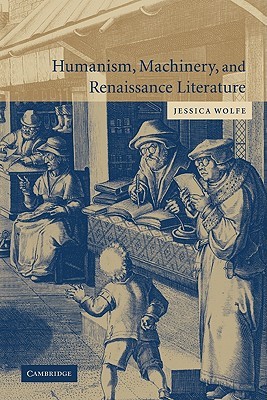
- We will send in 10–14 business days.
- Author: Jessica Wolfe
- Publisher: Cambridge University Press
- ISBN-10: 0521123763
- ISBN-13: 9780521123761
- Format: 15.2 x 22.9 x 1.8 cm, softcover
- Language: English
- SAVE -10% with code: EXTRA
Reviews
Description
Before the emergence of the modern concept of technology, sixteenth- and early seventeenth-century writers recognized the applicability of mechanical practices and objects to some of their most urgent moral, aesthetic, and political questions. This book explores how machinery and the practice of mechanics participated in the intellectual culture of Renaissance humanism. Harnessing the discipline of mechanics to their literary and philosophical concerns, writers (including Francis Bacon and Edmund Spenser) turned to machinery to consider instrumental means in a diverse range that spans rhetoric and pedagogy to diplomacy and courtly dissimulation.
EXTRA 10 % discount with code: EXTRA
The promotion ends in 10d.15:06:08
The discount code is valid when purchasing from 10 €. Discounts do not stack.
- Author: Jessica Wolfe
- Publisher: Cambridge University Press
- ISBN-10: 0521123763
- ISBN-13: 9780521123761
- Format: 15.2 x 22.9 x 1.8 cm, softcover
- Language: English English
Before the emergence of the modern concept of technology, sixteenth- and early seventeenth-century writers recognized the applicability of mechanical practices and objects to some of their most urgent moral, aesthetic, and political questions. This book explores how machinery and the practice of mechanics participated in the intellectual culture of Renaissance humanism. Harnessing the discipline of mechanics to their literary and philosophical concerns, writers (including Francis Bacon and Edmund Spenser) turned to machinery to consider instrumental means in a diverse range that spans rhetoric and pedagogy to diplomacy and courtly dissimulation.


Reviews